LG B4 vs LG C4: which 2024 LG OLED TV is better?
Should you buy the entry-level LG B4 or the mid-range LG C4?
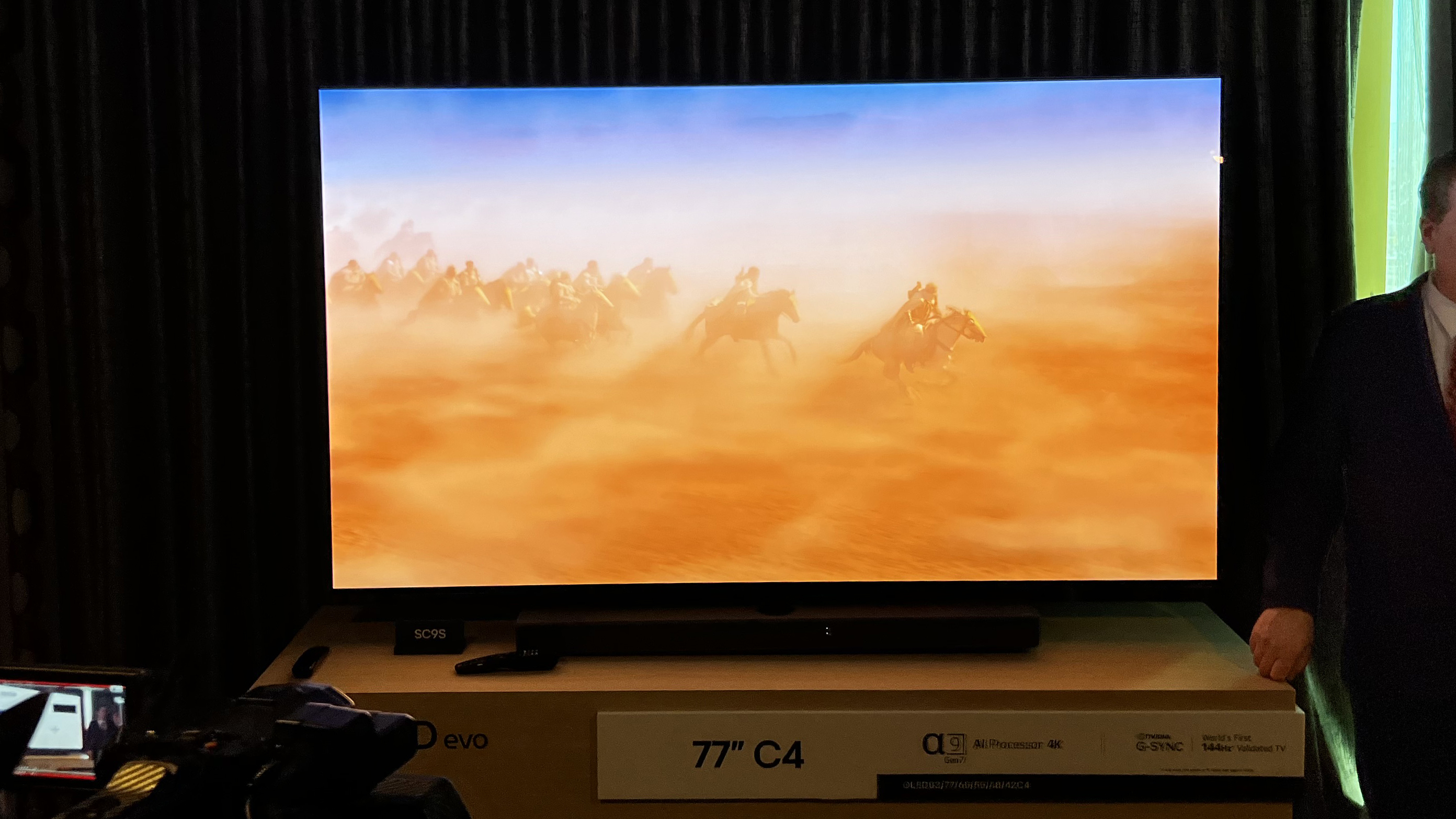
Sign up for breaking news, reviews, opinion, top tech deals, and more.
You are now subscribed
Your newsletter sign-up was successful
It's going to be a big year for LG TVs. LG revealed its OLED lineup for 2024 at CES in January, including the innovative wireless LG M4, alongside new versions of its OLED range, the G4, C4 and B4. But which new LG OLED TV is the right match for you? In our guide below, we'll put the two more affordable LG OLEDS, the LG B4 and LG C4, head-to-head to find out which is best.
The entry-level LG B4 is an upgrade on the LG B3, which we rated highly in 2023 for its excellent picture quality, great gaming performance and competitive price. Given these strengths, the LG B4 may a standout choice for those seeking a high-quality OLED TV in 2024 without breaking the bank.
Despite being the entry-level OLED in LG's lineup for 2024, the B4 will have a new version of the Alpha 8 AI processor, which will bring a big performance boost to the set. It'll also get four HDMI 2.1 ports to delight gamers and come in a new smaller 48-inch size.
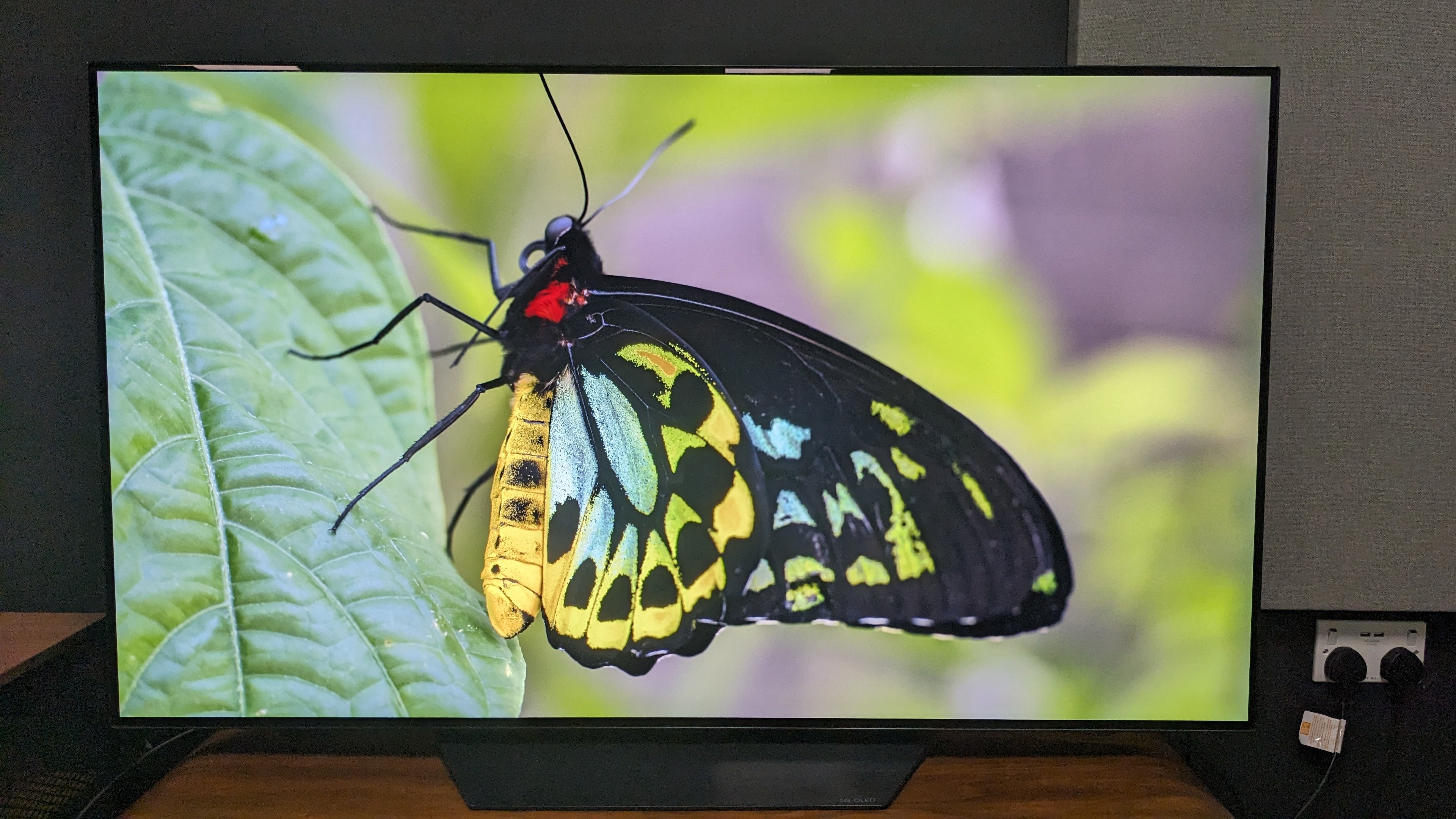
The step up model, the LG C4, is a mid-range TV and a successor to the LG C3. In 2023 we described the C3 as a "picture-perfect" TV for movies and gaming. Following in the footsteps of the C3, the LG C4 will get a new generation of the Alpha 9 AI processor with brighter images.
It'll also boast the enhanced gaming features in higher-end M4 and G4 models, like the 144Hz refresh rate. With lots of upgrades and improved specs, the LG C4 could easily be a contender for one of the best TVs of 2024. The big question is, should you buy the entry-level LG B4 or is it worth saving for the mid-range LG C4?
LG B4 vs LG C4: Price and release dates
LG hasn't revealed the official pricing details for the LG B4 or LG C4 yet. Historically, the TV maker announces prices close to launch, and, if past years are anything to go by, we can expect both new TV models to land in spring 2024, around March or April.
But until then, it's safe to say that the LG B4 will be the cheaper TV. That's what the 'B' label means in LG's naming structure, with the 'C' being more advanced and the 'G' and 'M' models moving into high-end categories.
Sign up for breaking news, reviews, opinion, top tech deals, and more.
But although the LG B4 is going to be cheaper than the LG C4 we're not sure just how much cheaper yet. Which will play a big role in determining not only which is the best LG TV, but which is the best value.
If we take a look at the models that came before them, the LG B3 cost:
- OLED55B3: $1,699 / £1,799 / $AU3,415
- OLED65B3: $2,399 / £2,699 / AU$4,095
- OLED77B3: $3,299 / £3,799 / AU$6,495
In comparison, the LG C3 cost:
- OLED83C3: $5,299 / £6,499 / around AU$7,900
- OLED77C3: $3,599 / £3,999 / around AU$5,370
- OLED65C3: $2,600 / £2,899 / around AU$3,900
- OLED55C3: $1,899 / £2,099 / around AU$2,830
- OLED48C3 $1,499 / £1,599 / around AU$2,240
- OLED42C3: $1,399 / £1,499 / around AU$2,100
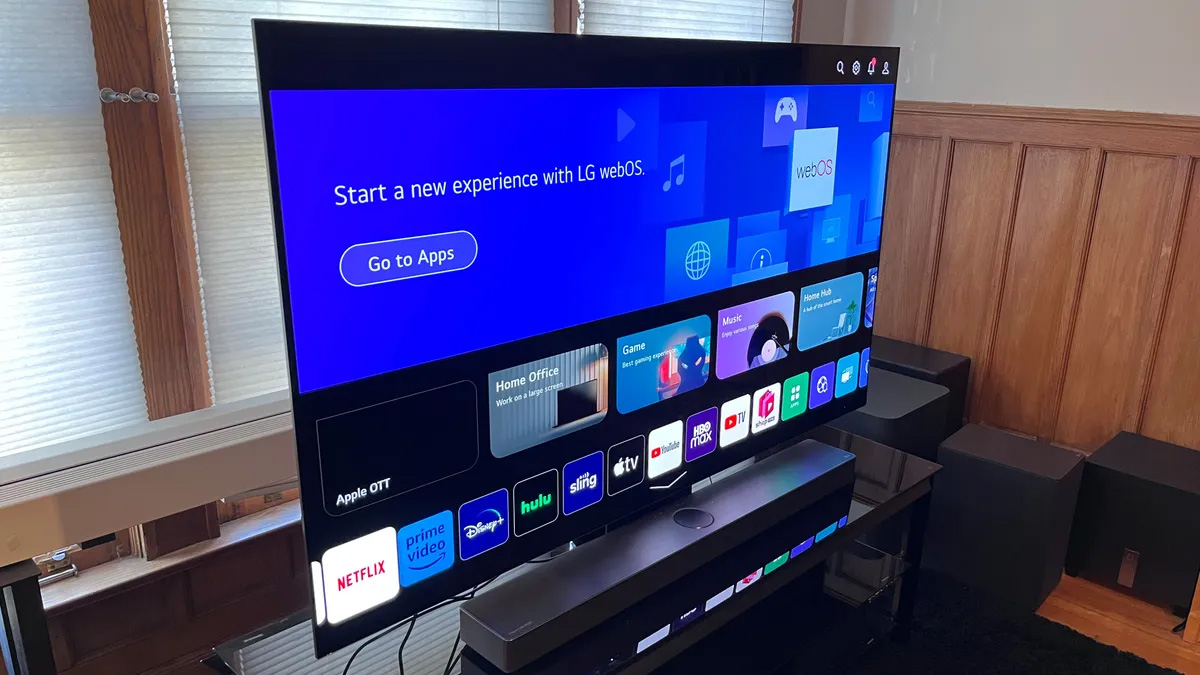
This means there was actually only a few hundred dollars difference between the B3 and C3. However, it's important to note here that prices of both the LG B3 and LG C3 dropped quite dramatically after launch, so we can expect similar from the upcoming B4 and C4 – good news if the initial prices are a little out of your budget.
Importantly, the LG C3 also came in smaller 42-inch and 48-inch sizes and a bigger 83-inch option compared to the LG B3. We already know that the LG B4, however, will introduce an 48-inch TV. This is going to be ideal for smaller rooms and means it's going to be even cheaper than the 55-inch option – great for those on a budget or someone who wants a very capable second TV for a spare room, study or solely for gaming.
LG B4 vs LG C4: Features
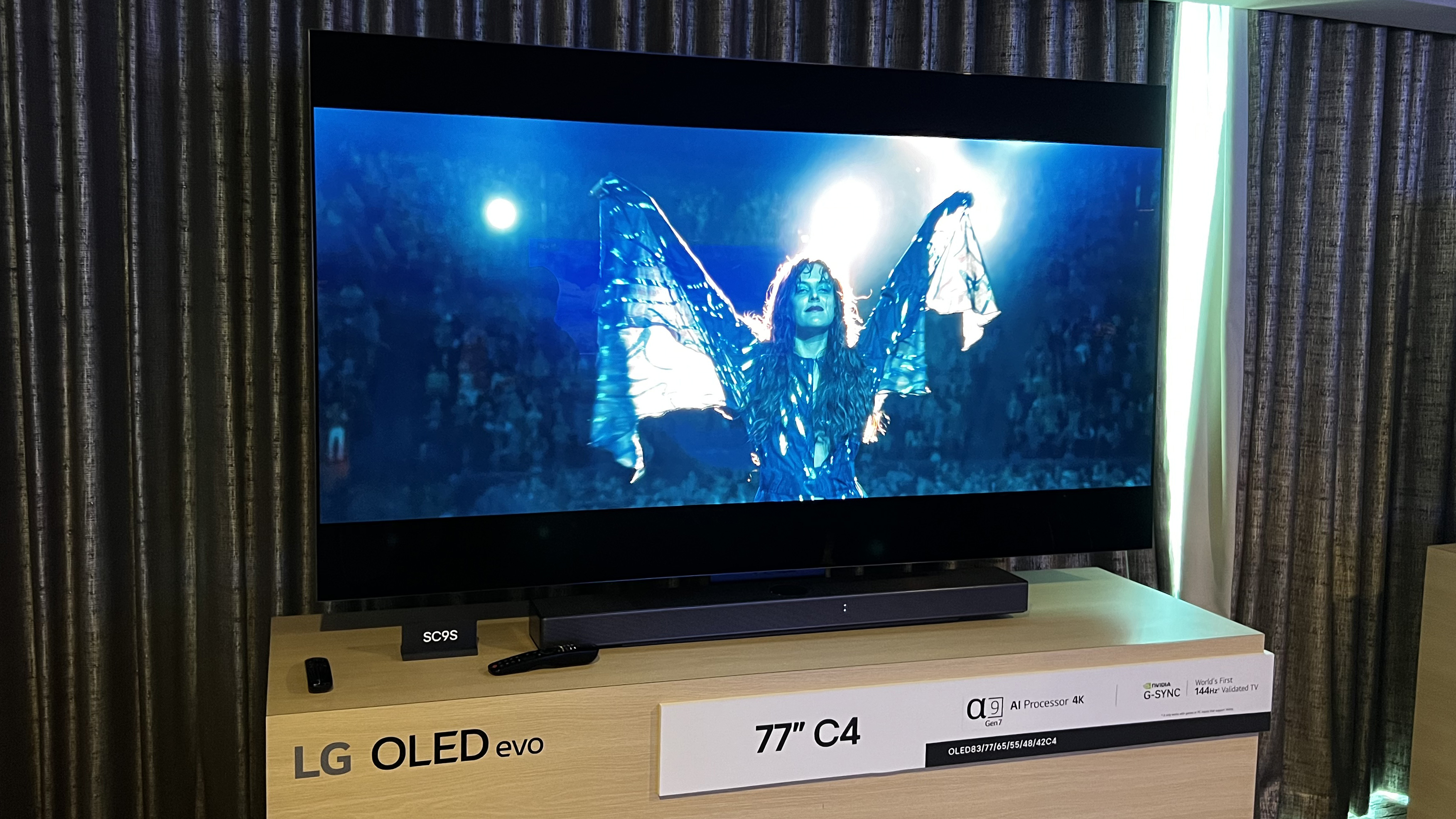
There are several key differences between these two TVs. The first is that the LG B4 will have an Alpha 8 processor, whereas the LG C4 will get a next-gen version of the Alpha 9 processor that was in the C3 that came before it. This is likely to give the C4 a performance boost over the B4, as well as notable AI advances, like AI Sound Pro, which optimizes sound settings to whatever you’re playing.
The C4 also has a performance bump for gamers with a 144Hz refresh rate, whereas the B4 offers a 120Hz refresh rate. However, the B4 and C4 both have four HDMI 2.1 ports – the B3 only had two – as well as features like VRR and ALLM. which means either TV would be a solid option for gamers. Both the B4 and C4 also have the latest version of LG's webOS 24 operating system and built-in Chromecast tech.
On paper, the LG C4 is the more impressive TV and there’s a noticeable step up in specs and features. But it’s only a step. So far, there’s no significant difference between the two, and we can’t wait to see whether that’s true once we get a chance to test them.
LG B4 vs LG C4: Picture quality
We’ll have to see the nuances of the picture quality on offer from LG B4 and the LG C4 ourselves to make a final judgement. But based on what we know so far, the C4 is highly likely to deliver the better picture. That’s because the C4 has a next-gen OLED Evo panel, whereas the B4 doesn’t.
This means that although the B4 will be noticeably brighter than the B3, LG’s OLED Evo panel will bring new generation self-illuminating pixels and its ‘Brightness Booster’ tech, which means more advanced light-boosting algorithms. So, we can expect picture quality from the LG C4 that’s brighter and more vibrant. Interestingly, this now applies to all sizes of the C4, even the smaller 42-inch and 48-inch models.

Add to this that the C4 has the better processor inside that we mentioned above. LG says this next-gen chip will improve processing power as well as peak brightness levels compared to the C3, thanks to vastly improved power management. What that means is the C4 will boast a superior picture to the B4, as well as to the C3 that came before it.
Although we haven’t had significant hands-on testing time with the B4 or the C4 yet, we have seen the C4’s performance in person, and can confirm the brightness boost looks impressive, with HDR highlights that are significantly brighter, too. We even commented that the G4, which was also on display, is more premium but didn’t look that different to the C4. We’ll see whether that’s still the case once we’ve tested both with more types of content.
LG B4 vs LG C4: Sound quality
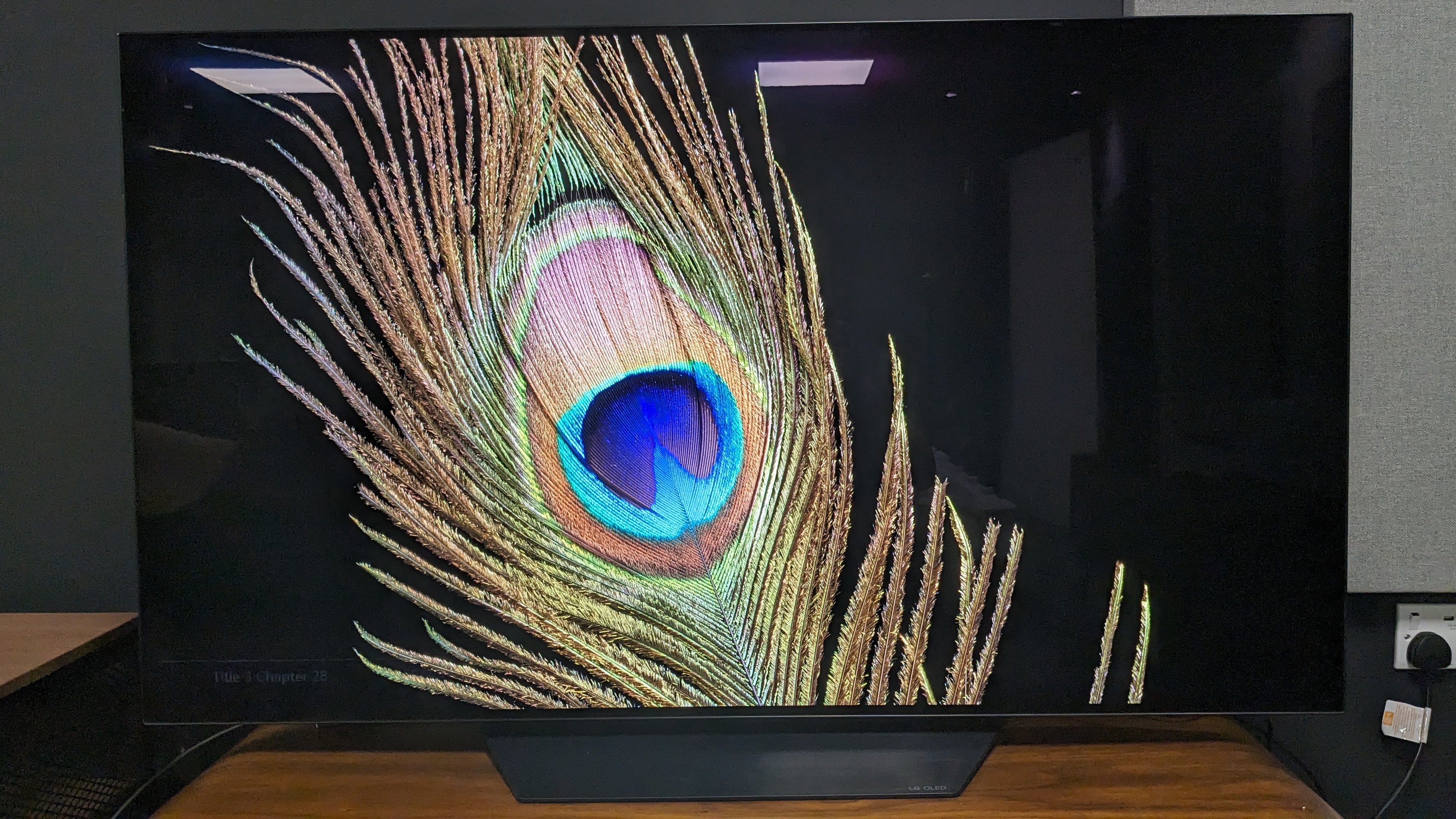
As well as boosting performance and picture, the Alpha 9 chip in the C4 will also bring LG’s AI Sound Pro tech to the panel. This is able to upmix audio into different virtual channels and optimize sound to better suit what you’re playing and watching.
The chip boost will also bring an exciting upgrade to the C4 that gives the panel the ability to pair with a compatible LG soundbar and get wireless, lossless Dolby Atmos audio. So you’ll be able to connect your C4 to a soundbar over WiFi without wires and still get that impressive, uncompressed audio.
We’ll need to experience these upgrades ourselves to see if it makes a notable difference to the way the C4 performs compared to the B4. Especially considering we called the LG C3’s audio performance “average” in our review. But, at least on paper, the C4 is expected to sound better, bolder and clearer – especially if you pair it with a good soundbar.
LG B4 vs LG C4: Verdict
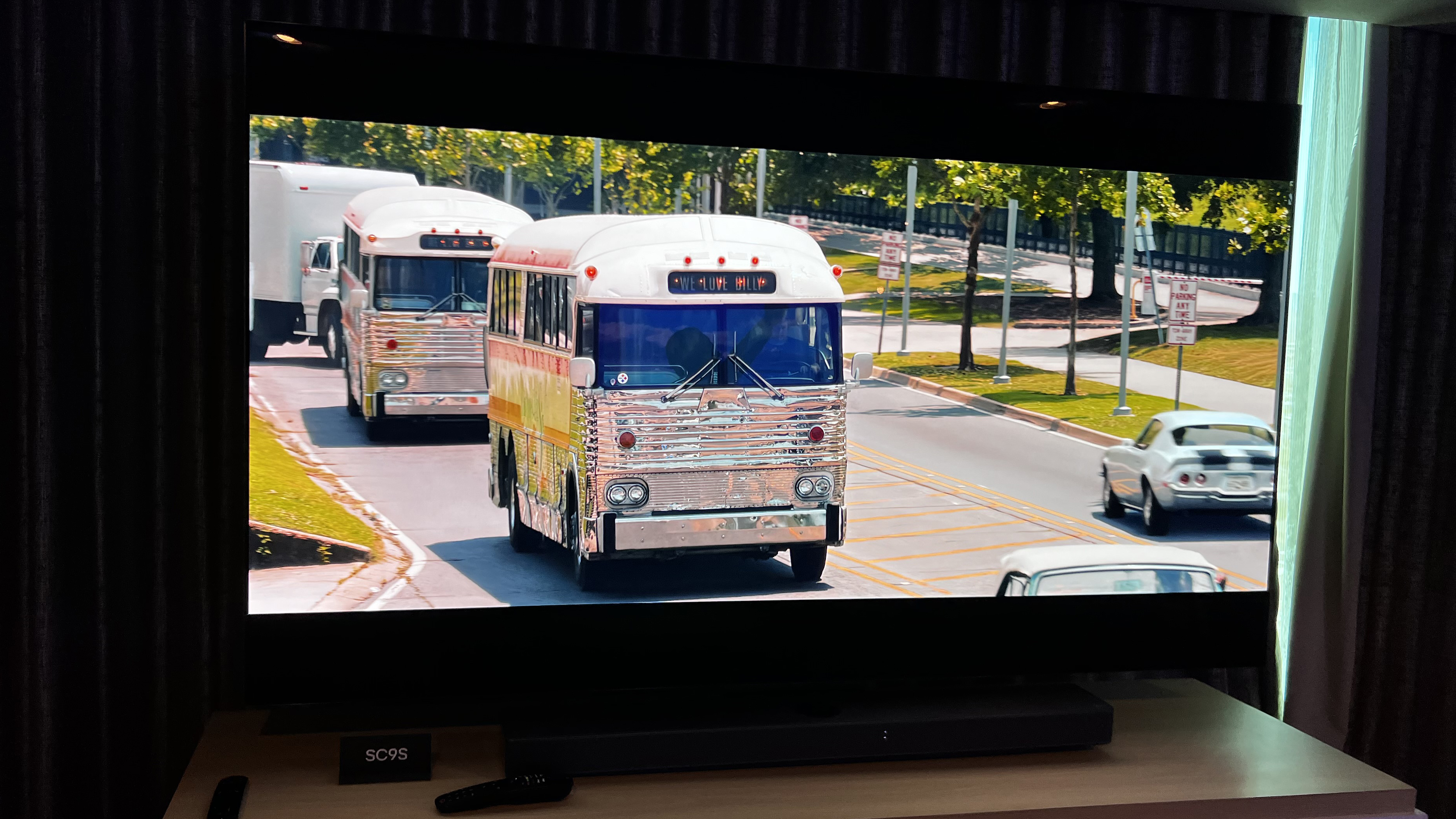
If you're only looking for the best performing TV, that's going to be the LG C4. It will be more expensive than the LG B4 and boast better specs, which means it'll deliver more impressive picture and sound quality.
This makes sense. The LG B4 is the entry-level model and is bound to be lacking some of the C4's key features. But that does mean if the B4 ends up being significantly cheaper than the C4 it could be the better value TV of the two, and therefore a more viable option for those on a budget.
We won't know which is the best TV, the LG B4 vs LG C4, across the board in terms of picture, sound, design and performance until we've had a chance to test both models ourselves.
But it won't be long before we'll have full pricing details and hands-on reviews. That way you can make the best decision for you, your preferences and your budget. Watch this space.
You might also like

Becca is a contributor to TechRadar, a freelance journalist and author. She’s been writing about consumer tech and popular science for more than ten years, covering all kinds of topics, including why robots have eyes and whether we’ll experience the overview effect one day. She’s particularly interested in VR/AR, wearables, digital health, space tech and chatting to experts and academics about the future. She’s contributed to TechRadar, T3, Wired, New Scientist, The Guardian, Inverse and many more. Her first book, Screen Time, came out in January 2021 with Bonnier Books. She loves science-fiction, brutalist architecture, and spending too much time floating through space in virtual reality.